Osaka Club A wins 216 player strong Japan Team Chess Championship 2023
Japan Chess Federation conducts the Japan Team Chess Championship on an annual basis. The 2023 event was held in the middle of September, on the 17th and 18th, taking advantage of a 3-day long national holiday. This tournament saw a record high participation: 48 teams, each comprising either four or five members, which translated into 216 players. Mayur Gondhalekar brings a detailed report of the biggest tournament in Japan, in terms of the huge number of participants. This event also marked Mayur’s debut as an arbiter. He has obtained the FIDE license of National Arbiter. Read on to know more! Photo: Japan Chess Federation
Total 48 teams take part in Japan's biggest chess tournament
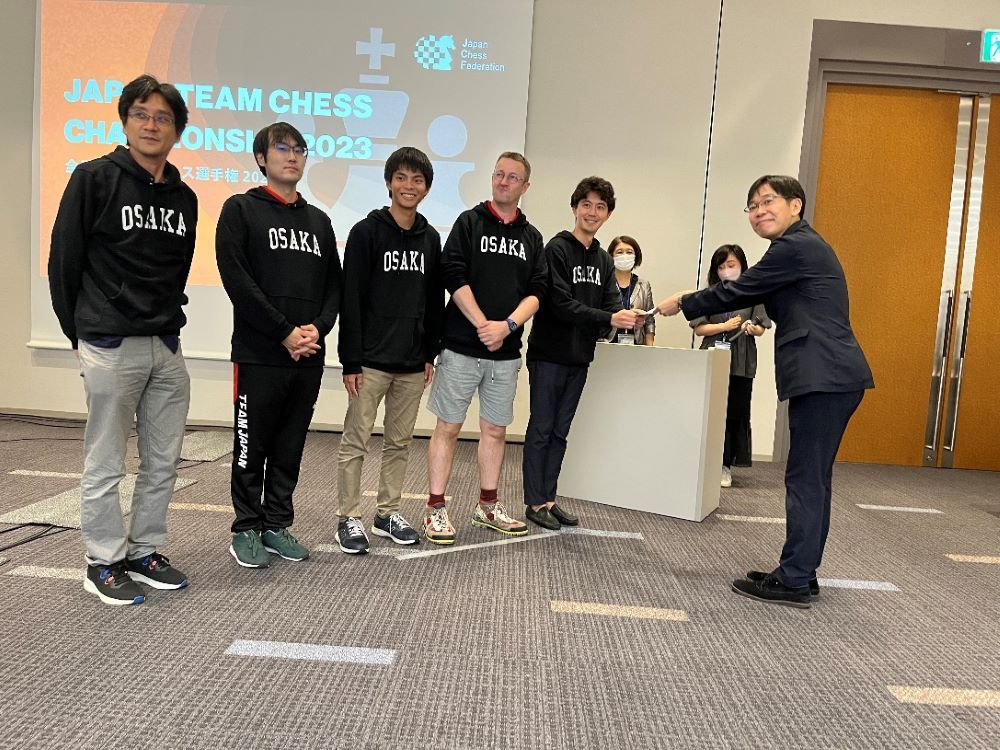
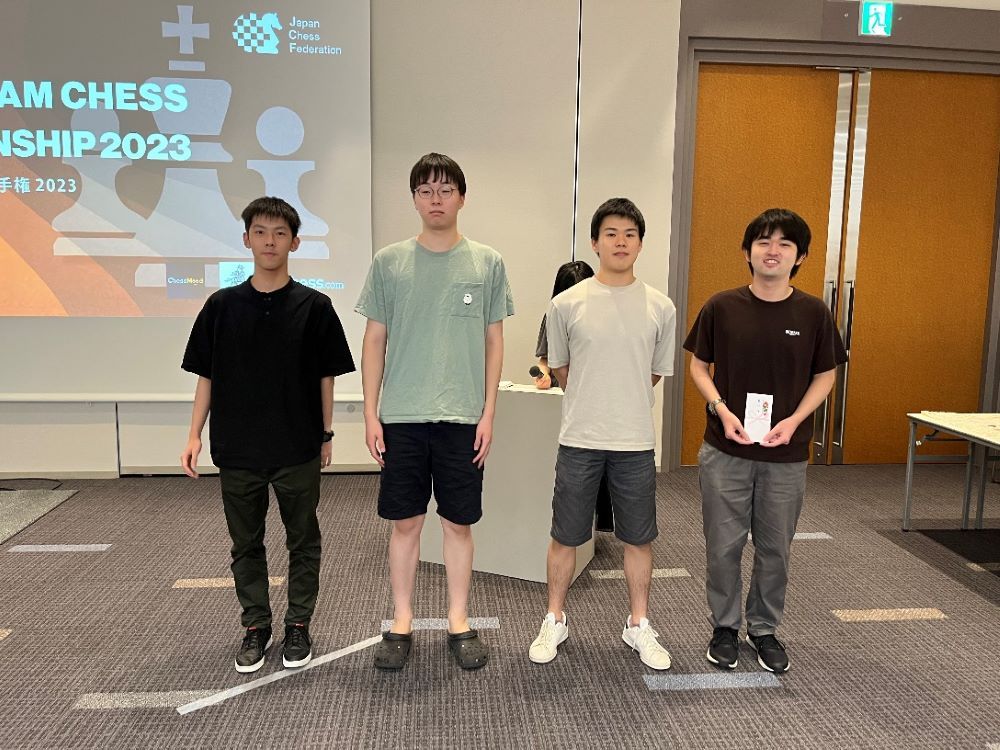
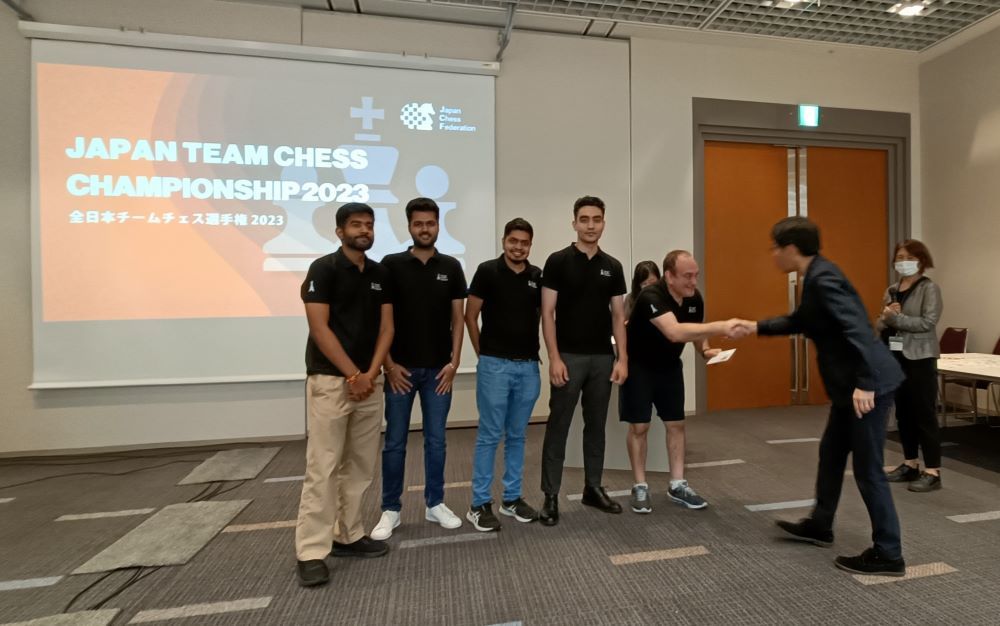
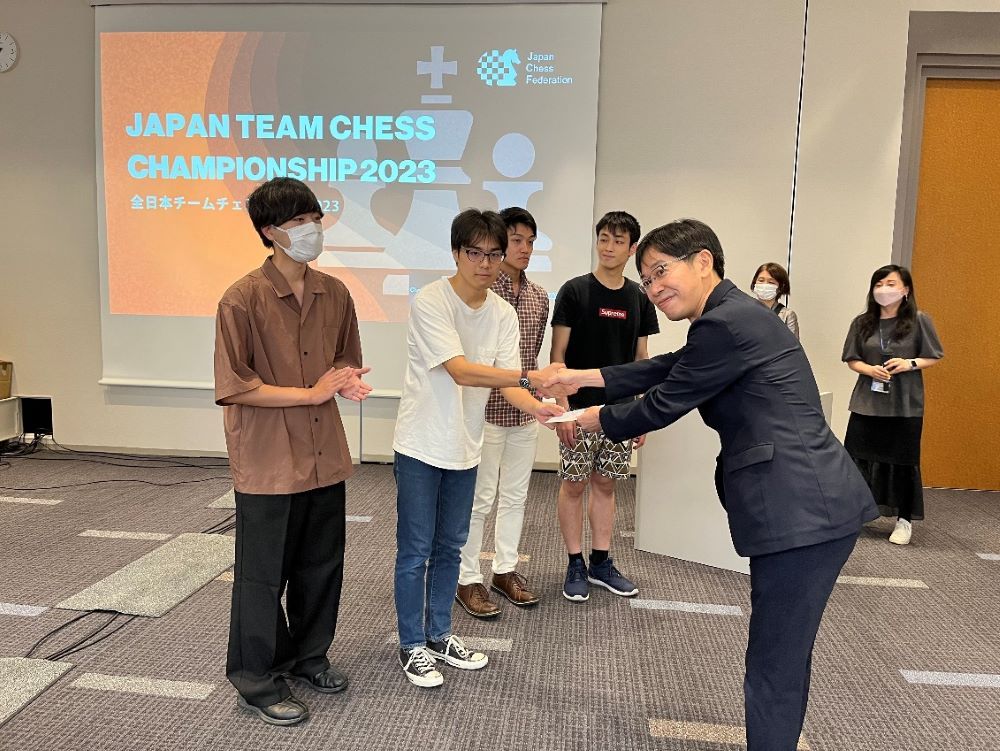
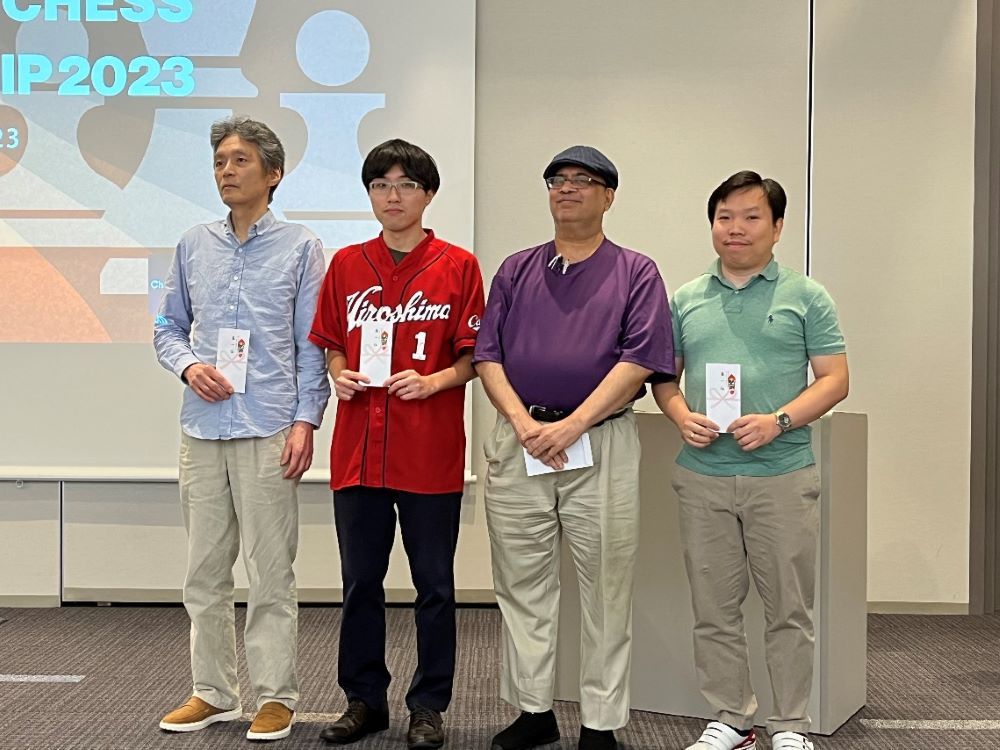
This was easily Japan Chess Federation’s highest participated-in tournament, by a distance! There was a huge variety in the composition of the teams – from a team (almost) full of Masters, to teams of regular club players, friends, all-women teams, as well as kids-only teams. Not only did this add a lot of colour to the event, but also became very interesting for the Arbiters.
Talking of which, I made my debut as an official arbiter in this event. Having passed the exams and obtained the FIDE National Arbiter (NA) certification, it was only a matter of time before I got the taste of the real action.
Overall, it was a pleasure to work with Manabe san, and the Japan Chess Federation team. Professional yet very friendly people, who genuinely want to promote chess in Japan.
The preparation
Physically and mentally demanding. Not only have to remember all the laws, but also the correct ways to apply them. Add upwards of 10000 steps per day, and there you have arbitration in a nut-shell.
The tournament staff included Mr. Hiroshi Manabe, president of Japan Chess Federation and Tournament Director; Xie Qinlan, the Chief Arbiter, a team of assistant arbiters, and additional staff. It was certainly a pleasure to work with both Manabe san and Shinran san. Very friendly, and amazing people to work with, yet at the same time, very professional as well.
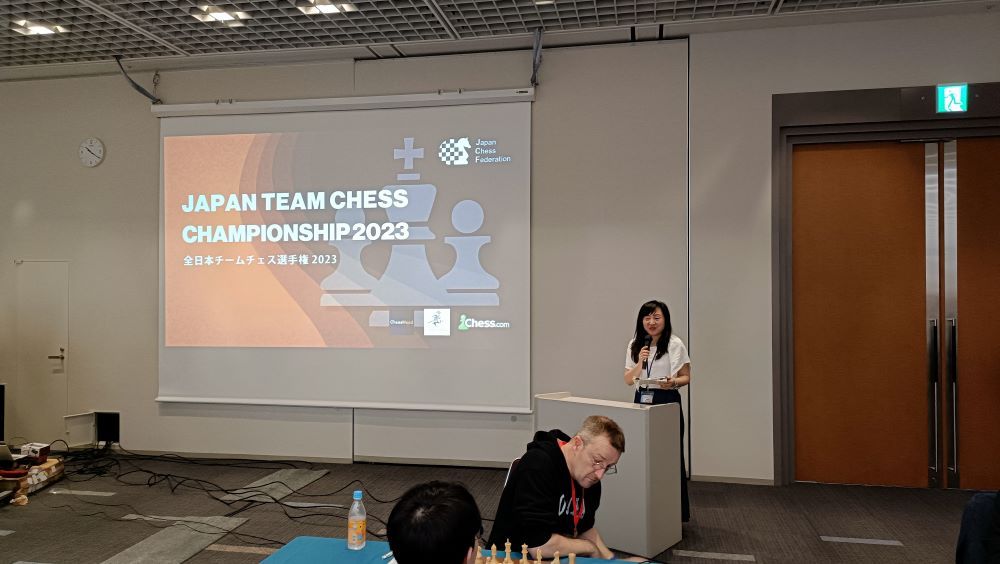
We had multiple pre-tournament staff meetings, a captains’ meeting, and a final gathering on the morning before the tournament. Player check-in from 9:30 am. Round 1 starts at 10:30 am. Arbiters and staff started their day at 8:30 am. With three rounds per day, the day easily lasted around 12 hours long! Long, but a lot of fun.
Preparation included setting up the chess boards with proper orientation for a team event, ensuring the clocks work correctly, placing them correctly with the switch raised for the white player. Welcoming the team captains, ensuring they receive the kits that included score sheets, team name tags, as we can see in the photos.
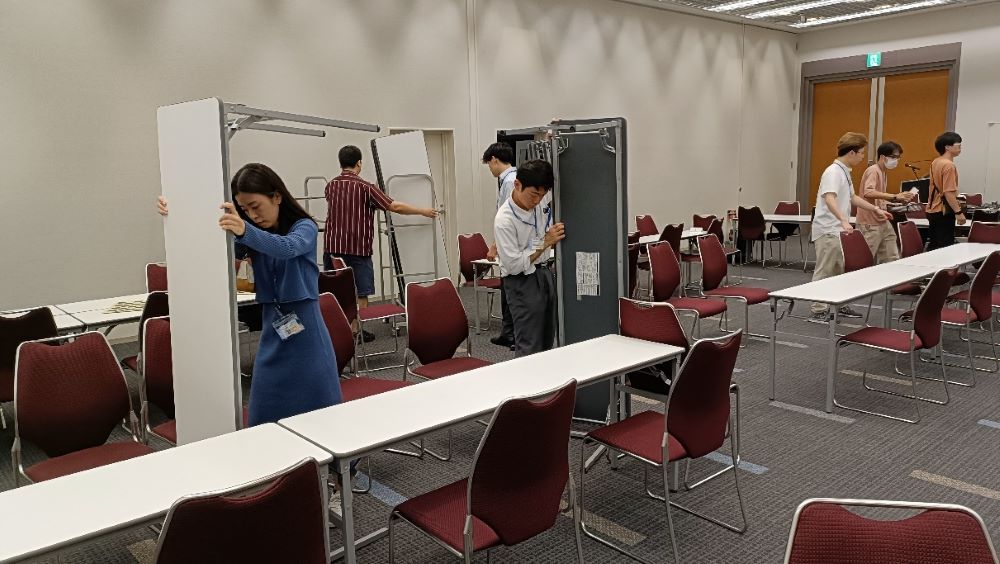
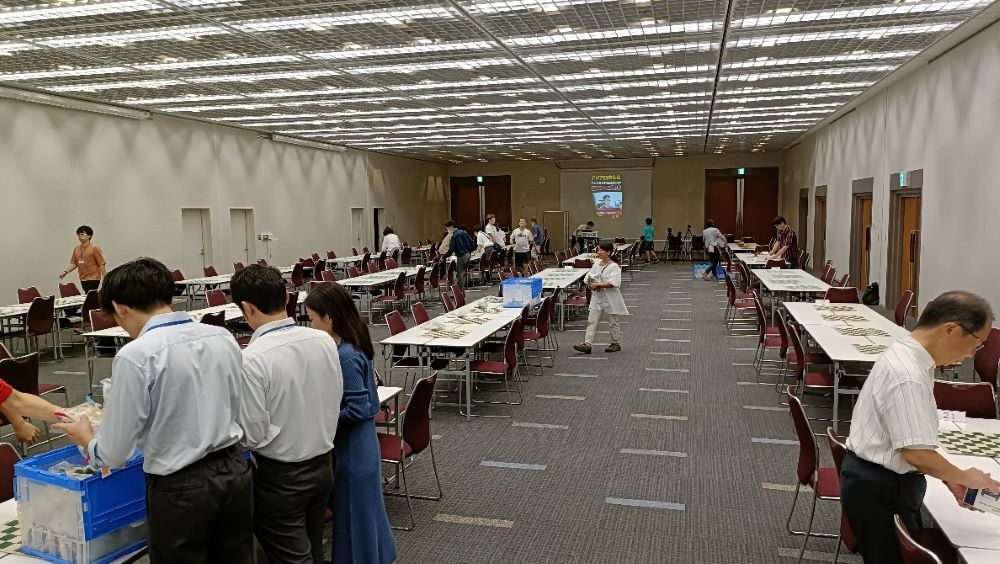
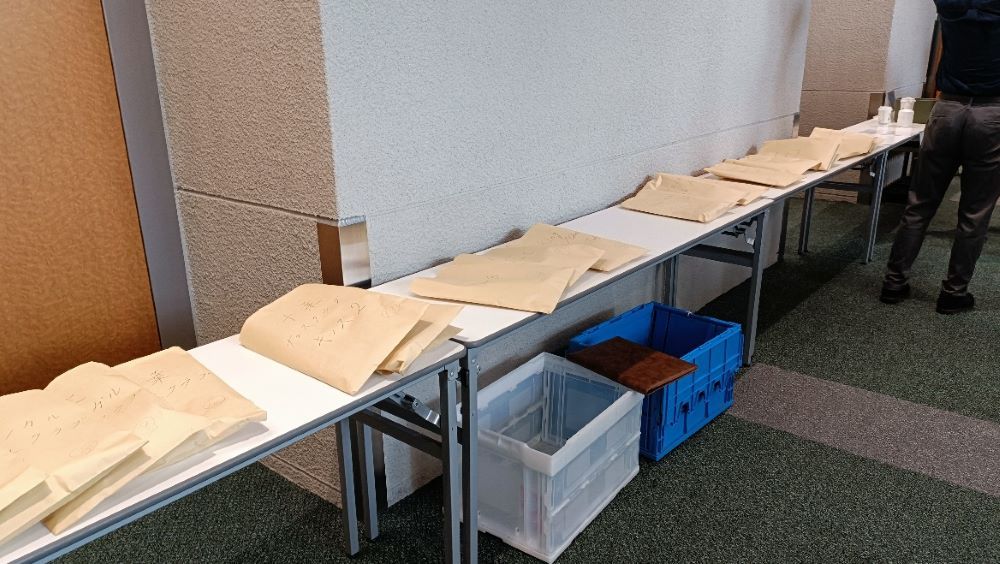
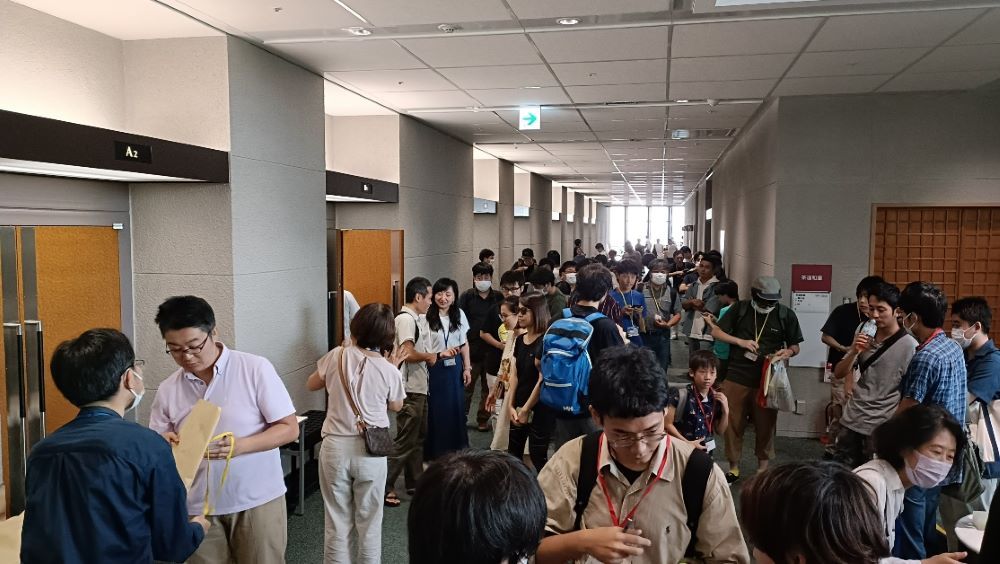
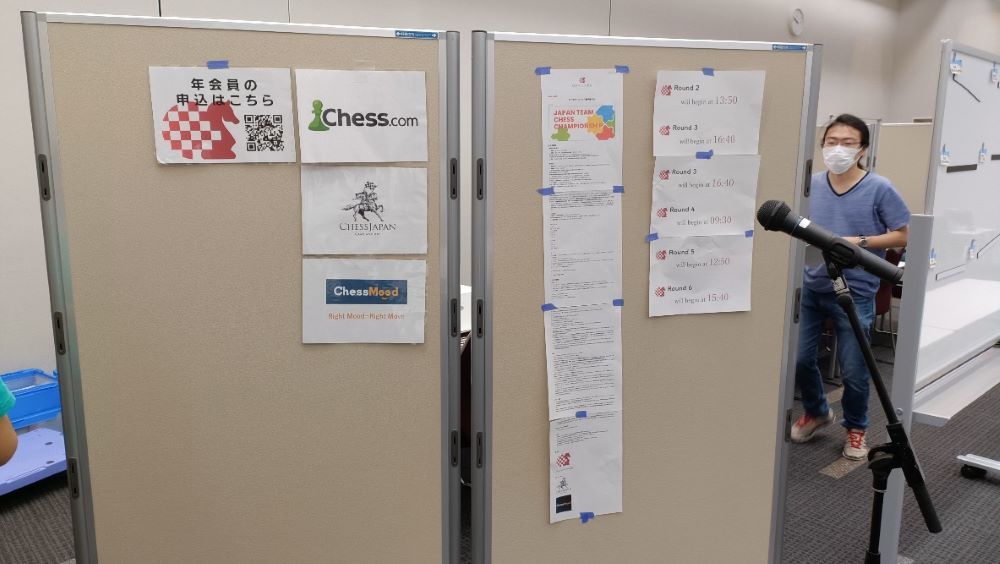
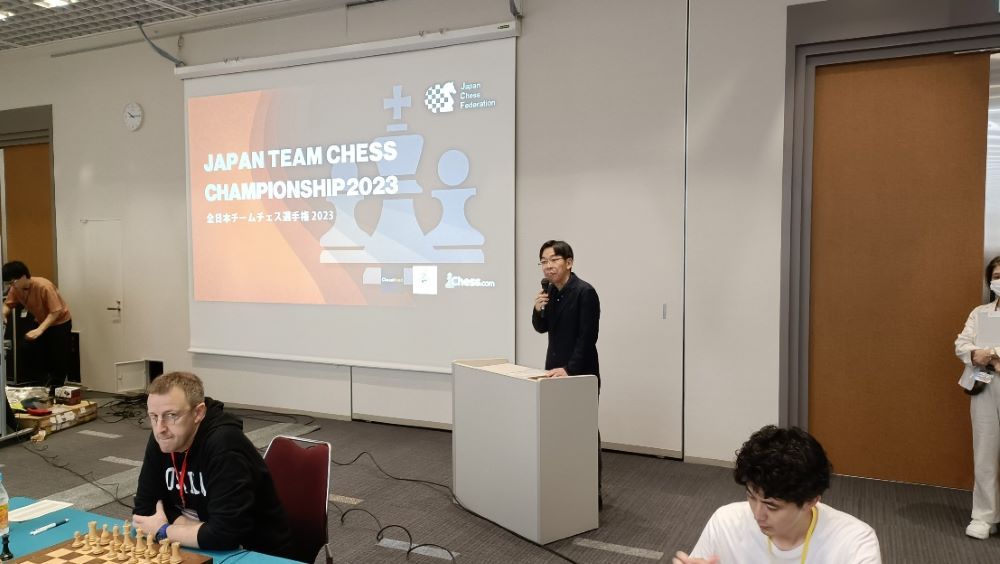
The Tournament
The tournament consisted of six rounds, with a time control of 30 mins + 30 seconds per move from move no.1. It was compulsory to record all moves till the end of the game. The first three rounds were on September 17, while the rest were on September 18. Each team comprised of 4 or 5 players, and the entry fee was 20000 yen per team (with some discounts for U22 teams).
Winning an individual game followed the same scoring of 1 point for a win, 0.5 for draw, 0 for loss, while winning as a team fetched 2 Match points, a draw 1, and a loss 0.
Prizes
Open 1st: 50000 yen, 2nd 40000 yen, 3rd 30000 yen, 4th 25000 yen, 5th 20000 yen
Group A (excluding winners of Open): 1st 20000 yen, 2nd 15000 yen, 3rd 10000 yen, 4th 7000 yen, 5th 5000 yen
Japan Collegiate Chess Championship Team would receive 20000 yen for the 1st place finisher.
Additionally, there were board prizes of 5000 yen for top performer on each board. All elementary school and kindergarten players would receive a participation prize.
The tournament was amazing. Great chess and good manners all round. There were enough calls to the arbiters to keep us busy – mainly illegal moves, sometimes other queries. Some unfortunate or out of the ordinary incidents also took place – like moving a pawn from 3rd rank to 5th rank directly, the cell phone incident. Finally, in time pressure, with the last few games to go, arbiters had to observe the games keeping the chess clocks in sight. As Manabe san joked later, arbiters may tend to be stronger in end-game play than middle game, as they must mandatorily observe (end-)games finishing in time-trouble!
While the games of table 1 were of naturally high quality, the arbiters and staff did get a glimpse of some awesome games on the lower boards. Round 4 game on Table 9, Board 1 between Azizjon and Noguchi san was especially very interesting as the lower rated Azizjon was in a winning position against an opponent 600 elo points higher.
Azizjon - Noguchi, Round 1
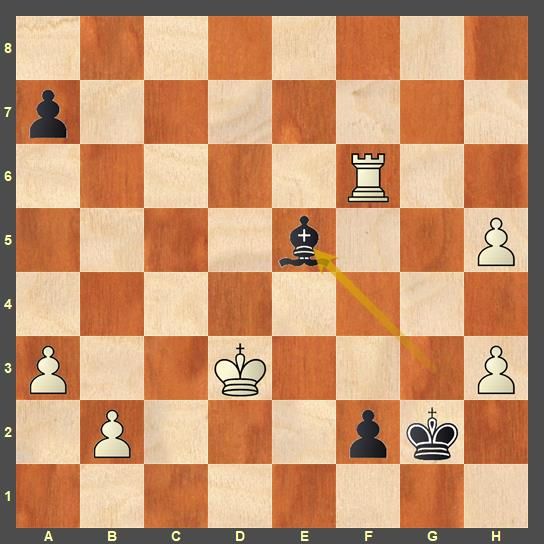
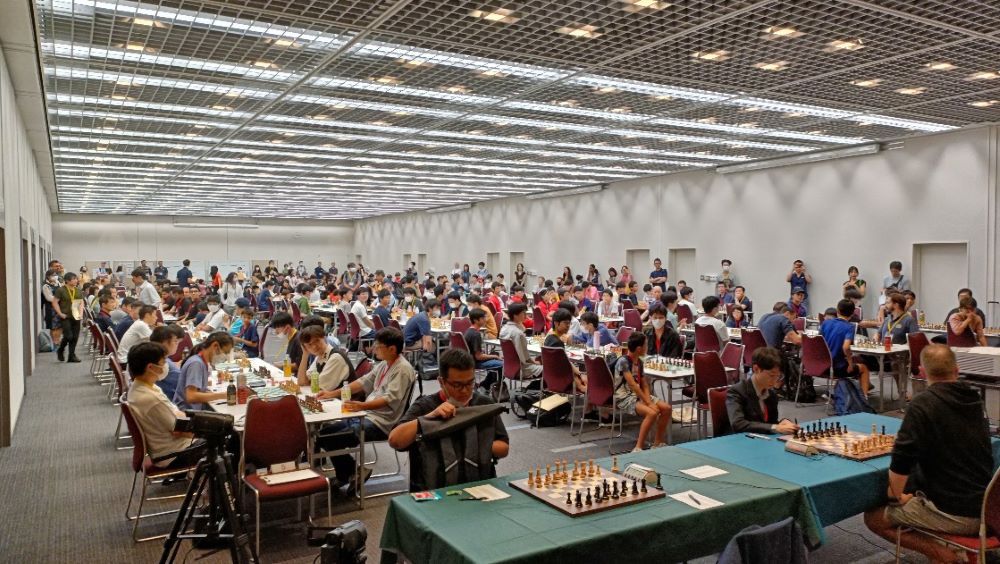
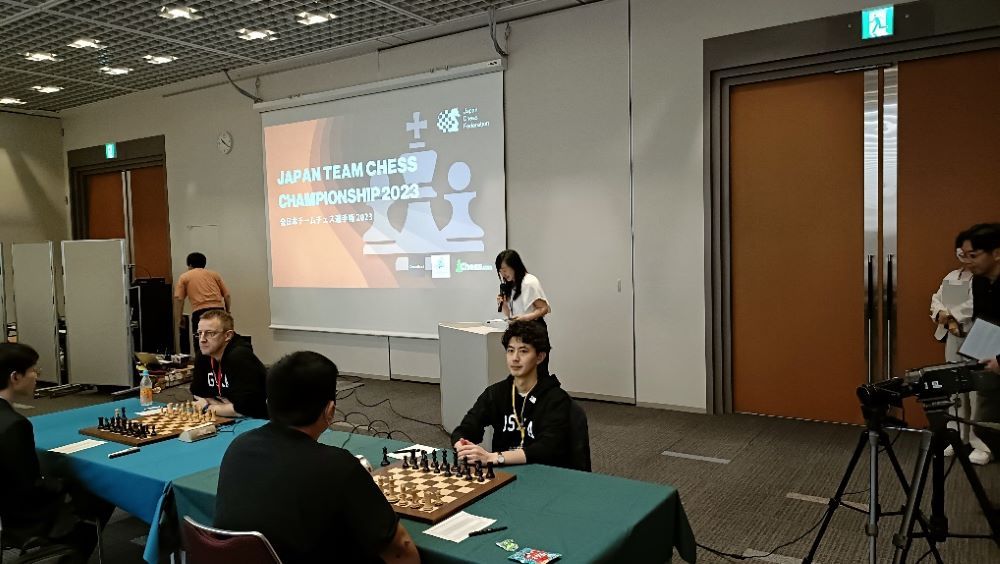
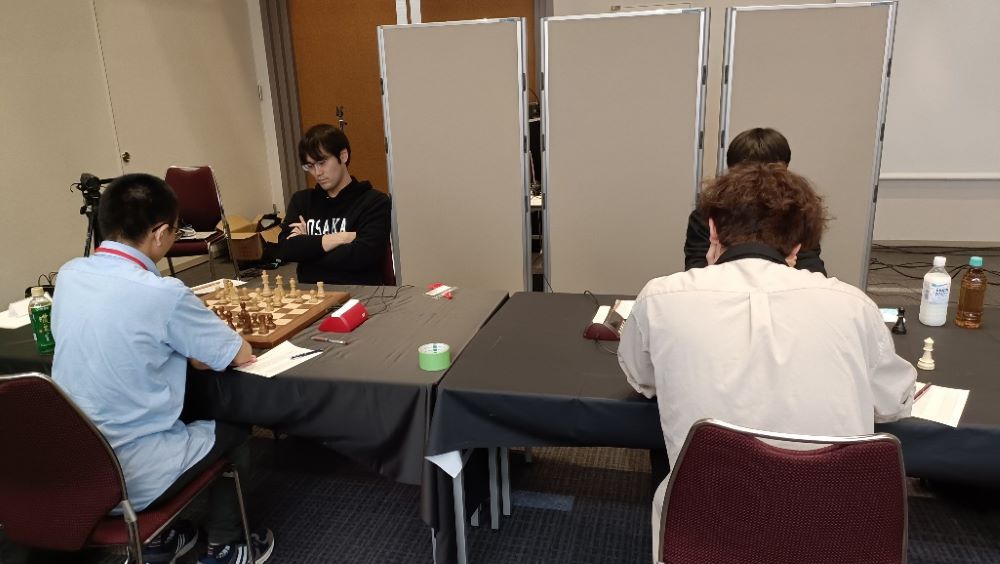
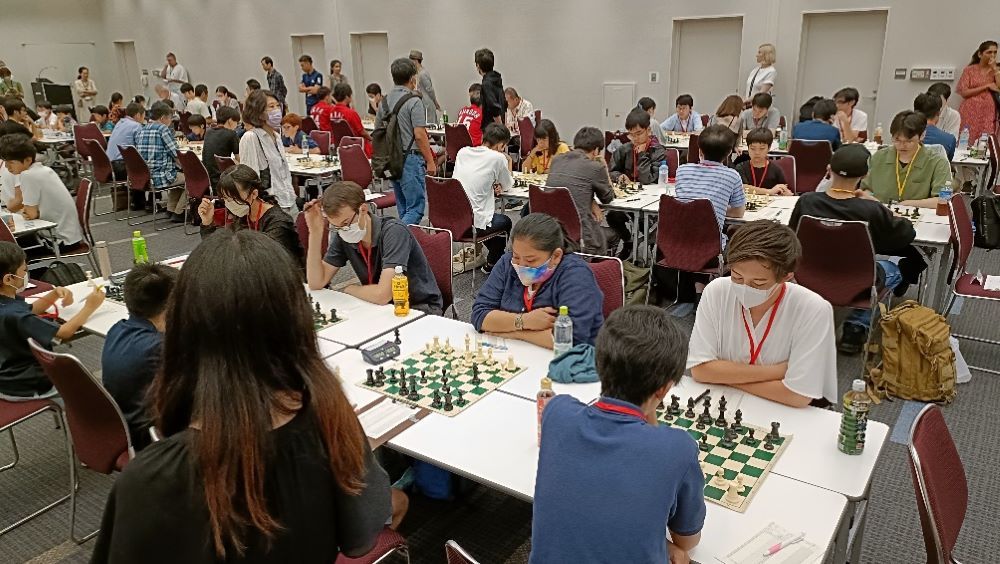
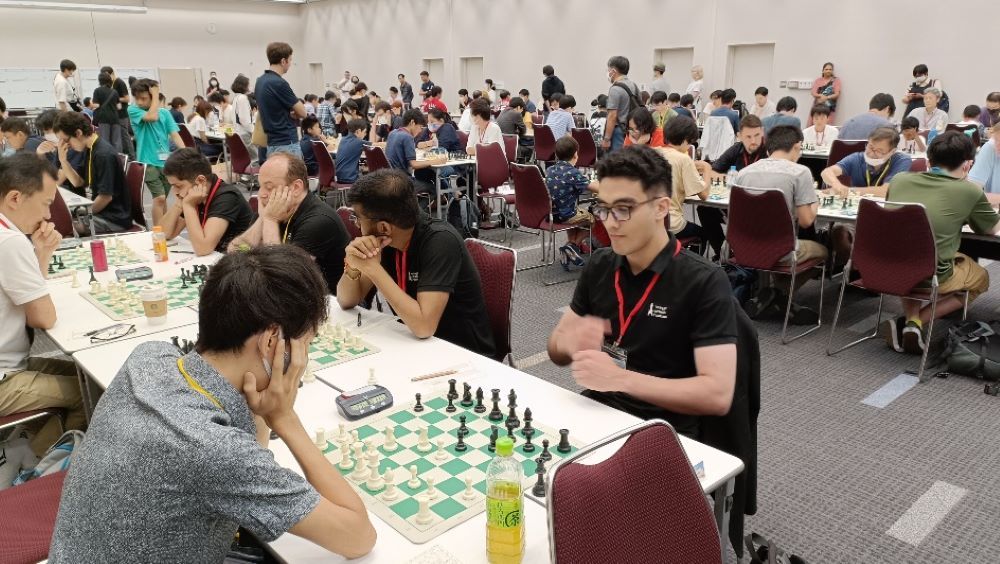
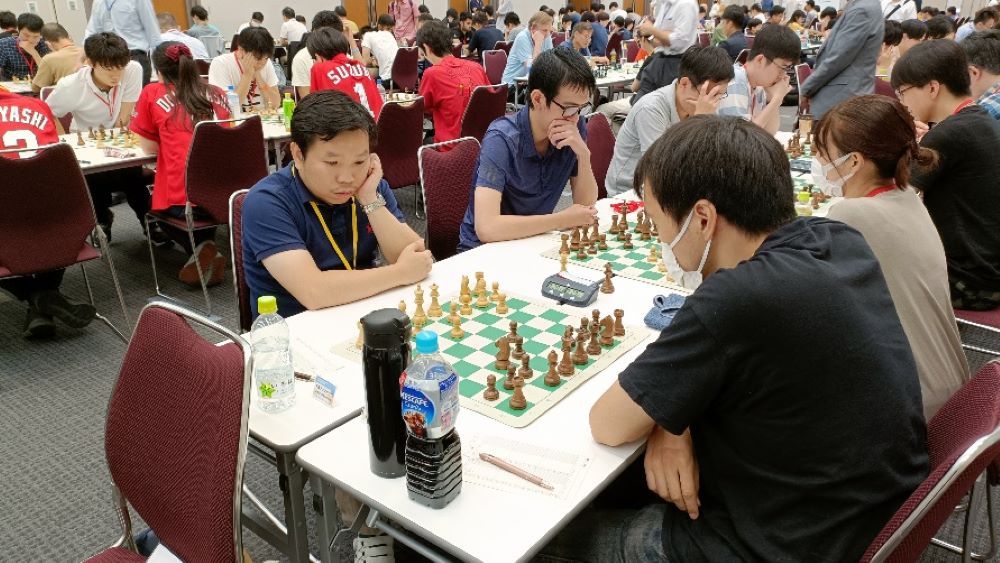
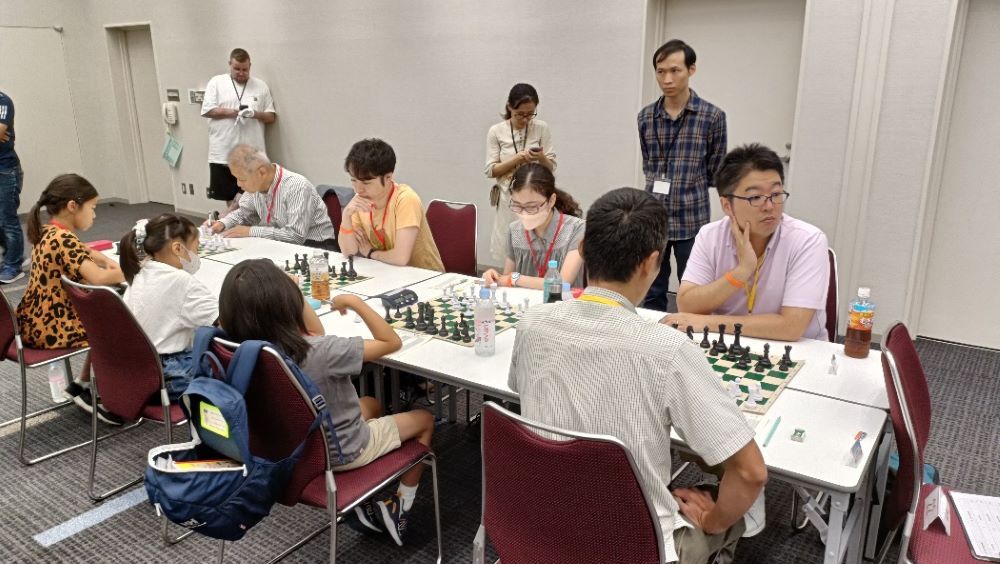
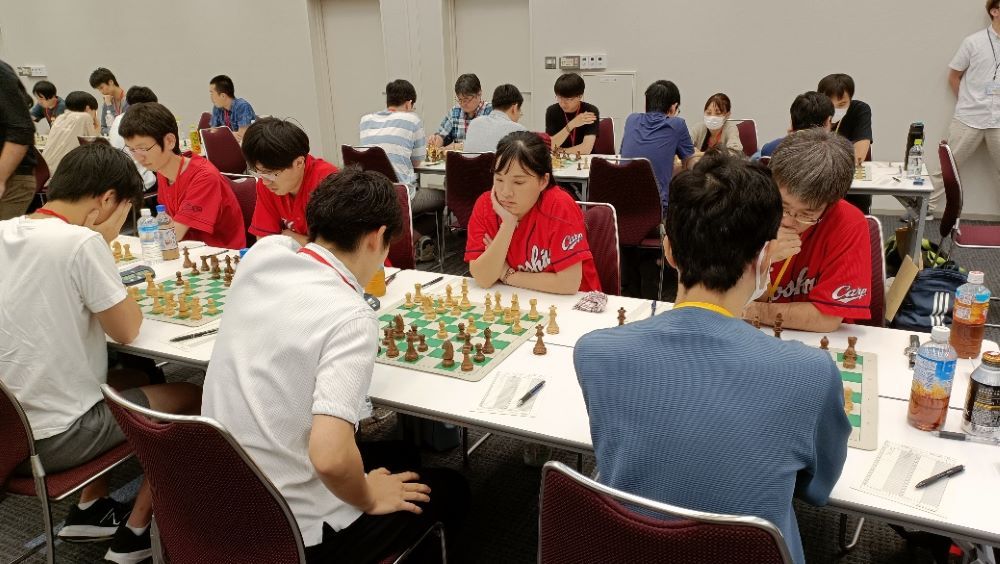
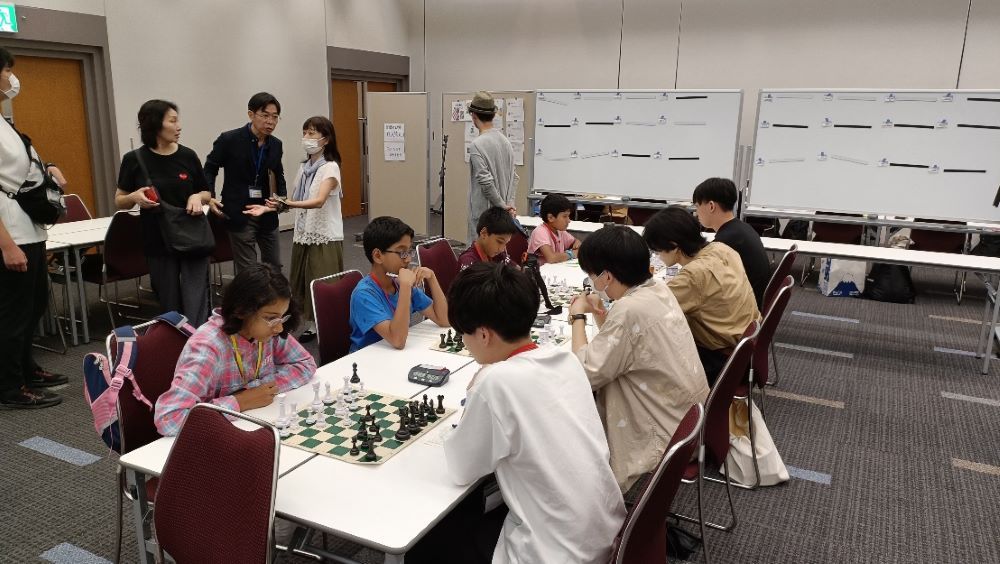
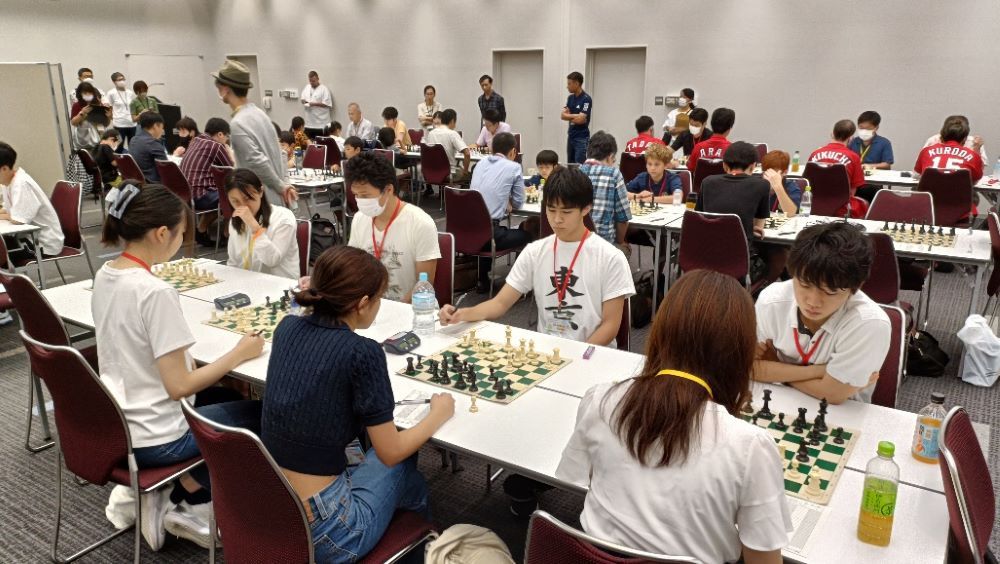
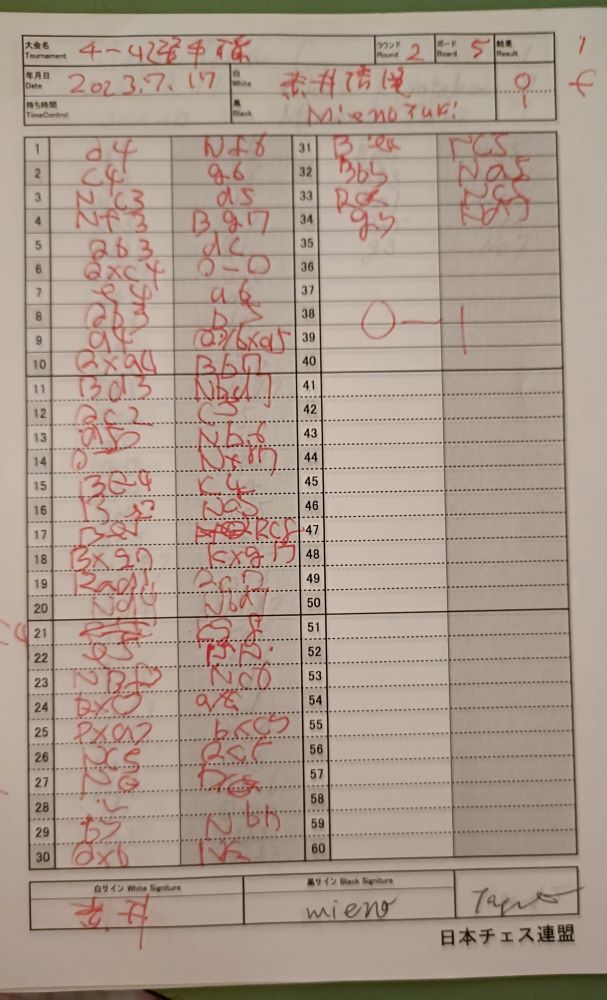
Between the rounds
As each game ends, the Arbiter has to check, verify and write the result correctly on the results sheet. Once all four games on a table finish, the arbiter checks and verifies all results, ensures they are correctly written, totals up the score, and most importantly takes the signatures of the two captains.
These submitted scoresheets are then input into Swiss-Manager software. Two of us got a chance to learn how to input team compositions, game results, and update the results and pairings onto chess-results website. In the beginning, this can be a more daunting task than on-the-floor arbitration, as there is very little room for inaccuracies. Nevertheless, it was good fun to do some data entry and get a few moments of rest!
On day 1, I ended up walking more than 20000 steps. It is only thanks to the data entry on day 2, that I logged “only” 15000 steps.
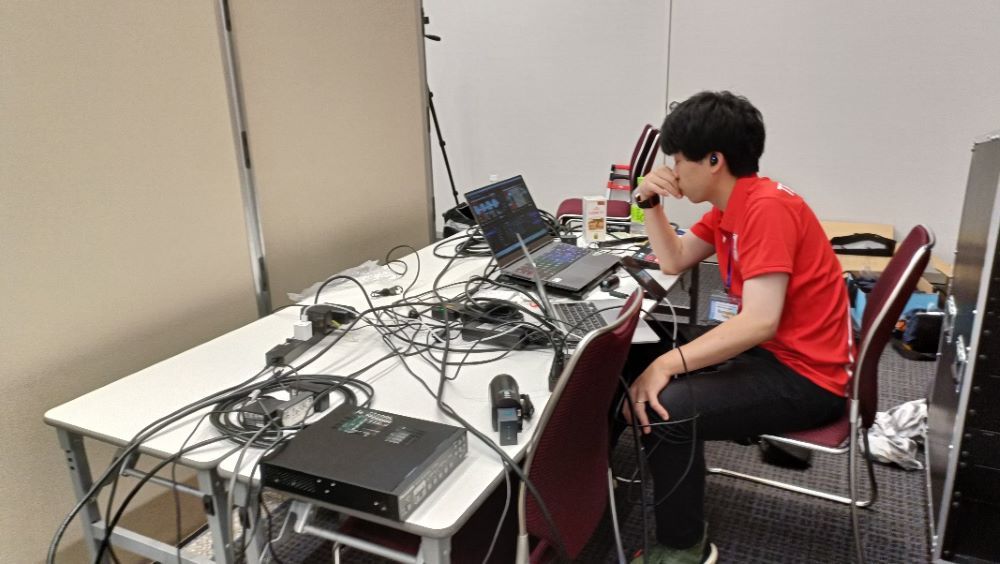
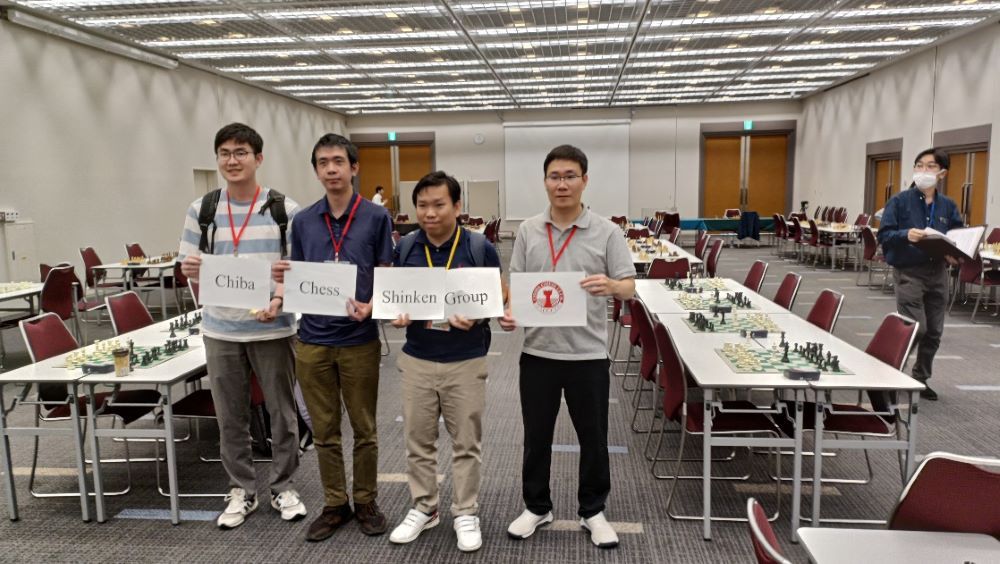
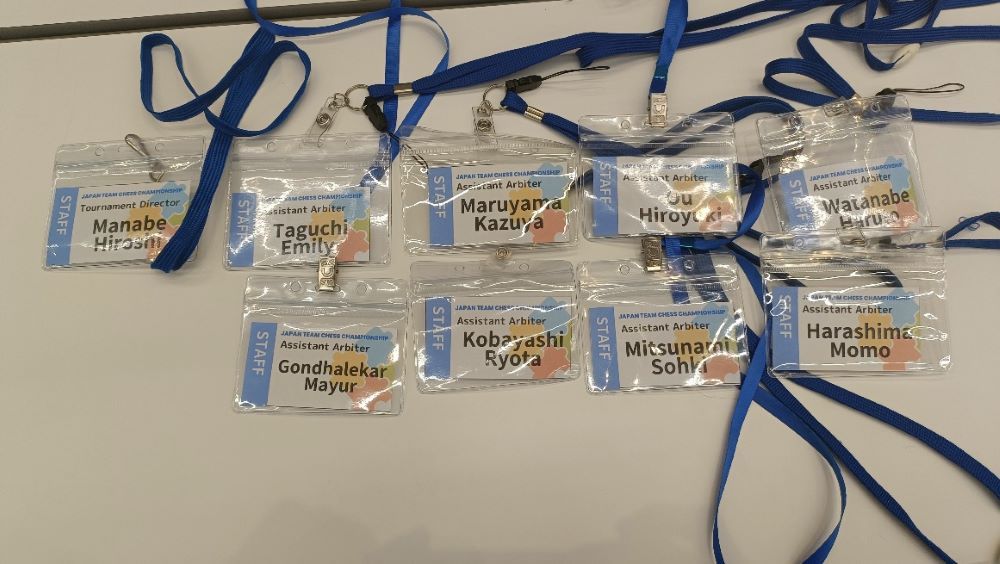
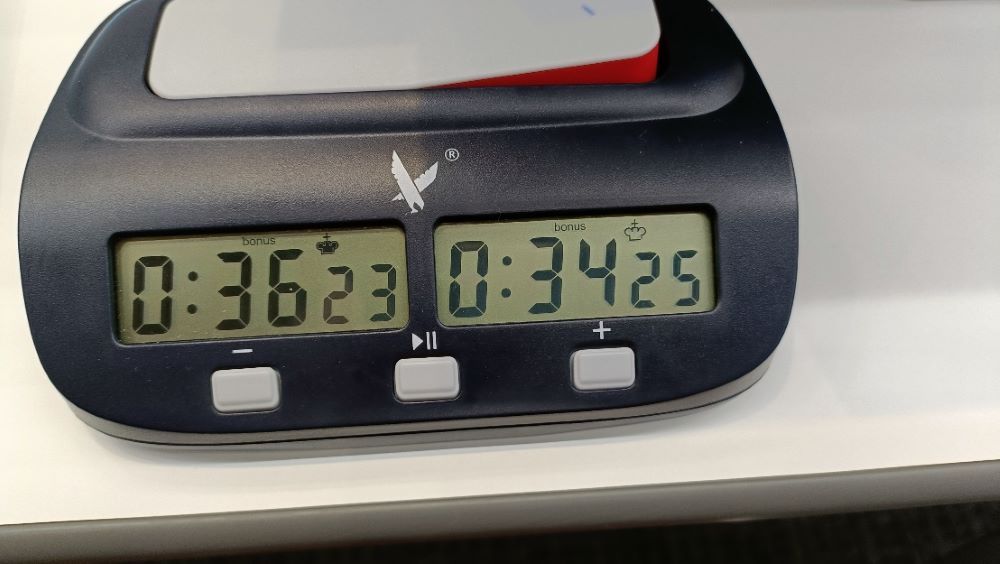
Finally the results
Open
| Rank | Team | Score |
| 1 | Osaka Club A | 11/12 |
| 2 | Todai Chess Circle A | 10/12 |
| 3 | Setouchi Chess Club A | 10/12 |
| 4 | Keio OB | 9/12 |
| 5 | Tohoku Univ OB | 9/12 |
Group A
| Rank | Team | Score |
| 1 | Keio Team A | 6/12 |
| 2 | Tokyo Tech | 6/12 |
| 3 | Tokyo Check Mates | 6/12 |
| 4 | Azabu Chess Club | 6/12 |
| 5 | Yoyogi Park Chess | 6/12 |
Japan Collegiate Chess Federation Championship team first prize
1st - Todai Chess Circle B 7/12
Board prizes
| Board no. | Player’s name | Team name | Score |
| 1 | CM Tran Thanh Tu | Chiba Shinken Group | 6/6 |
| 2 | Bhatia Praveen | Divine Chess Gurukul | 5/6 |
| 3 | Kani Hiroaki | Setouchi Chess Club A | 6/6 |
| 4 | Sawamura Tetsushi | Nagoya Chess Club | 5.5/6 |
I was finally able to meet FM Simon Bibby (of the winning Osaka Club A team). A very friendly person, he had a nice surprise in store for Chessbase India, a spontaneous interview!
Mayur: Can you tell me about the Osaka team?
FM Simon: The players are mostly Osaka-based. Hirao lived and went to university in Osaka, but moved to Tokyo for work after graduating. Board 4 Matsuo is from Tokyo, but has lived for some years now in north Osaka where he works as a researcher. I lived in Osaka from 2000 to 2011, when I moved to neighboring Kobe. I have been going to chess club in Osaka for some 23 years now. I love Osaka! Our young board 2 Nakahara has been coming to Osaka chess club for a number of years, and is now a student of medicine at Osaka University. Our board 1 Kojima is someone I asked to join us, to strengthen our team. No obvious Osaka connections, but hey, the rules are flexible, and anyone can play for anyone. I asked, he joined, hey presto. And frankly, I didn’t feel like playing board 1 any more!

Mayur: You had a team sweatshirt I see. How did this come about?
FM Simon: Chess is an individual game. Four people playing separate games is not a team as we see in for example rugby, volleyball, or football. I considered that getting team tops would provide greater togetherness of sorts. I think it adds to team spirit. So, I went shopping on Amazon, and bought hoodies. In terms of colours, I was inspired by the old Sky cycling team top, having read that other teams hated the swarm of black at the front. Of course white / black is chess colours too, and there is something to be said for minimalism.
Mayur: How did the event go?
FM Simon: We outrated other teams by a distance, on paper. But over four boards anything can happen. European leagues have up to 8 boards, where a big rating gap leads to few overall surprises in terms of match results. But over fewer boards, an occasional accident can have a bigger impact. We were perhaps a little fortunate not to lose to 8x8 who had won in the previous two years, The last round was tight, and at one point early on positions on 2 and 3 looked a little bleak.But Nakahara and I turned these around, and we won 2.5-1.5 to take the title. Just behind us, second placed team Tokyo Chess Circle were strong, but they had an accident earlier against Aichi Champions, so we never faced them.
Mayur: What are your thoughts on the event overall?
FM Simon: Before the event, I was stunned that 48 teams entered. That’s a lot of people, and a lot of people in one place! In terms of pure entry numbers, this is the biggest chess event in Japan thus far. There were a number of junior teams, so there were dozens of children participating. There were a good number of female participants too. Happily, all participants played in a single large room, and I do think it’s good for all players to be together. The room was spacious and comfortable.
Mayur: The event had live coverage, with commentary on YouTube. Does this make you or other players nervous at all?
FM Simon: From a purely personal perspective, it’s good when I play well and win. Not so good when I make a pig’s ear of things 🙂 Not nervous, no. One just knuckles down and focuses. Like we learn from the Stoics Epictetus and Marcus Aurelius, while one may not be able to change the environment, one can manage one’s response to it. And that is what we do.
More generally, it’s a good way to reach out to more players. Particularly players who we may think as latent - who maybe got into chess during Covid, who play a bit online and such, but who have not made that further step toward IRL in youngster parlance. OTB for chessers. I had a student where I work part time on Mondays come up to me one lunchtime between classes and say he’d been watching the coverage last year of the Olympiad.
Mayur: How is chess in Japan developing?
FM Simon: I arrived here in 2000. At the time there were just a handful of players of ‘international standard’ around 2100-2300 level. This is in reference to 2200 which used to be the minimum level for international ratings. There were not so many players in general. There were few events and chess was very much a minority pursuit. The national federation at the time was …problematic in terms of structure and finances.
Now there are many more events, there are many more players overall, and there are more players at what we might think of as ‘international level’. There are two international masters now. No GMs as yet, but this I think will come with the next generation. There are 2-3 players in their late teens and early 20s who I expect to advance quickly.
The new organisation came into being in 2018, started by the indefatigable Yumiko Hiebert. Leadership has now transitioned to current president Hiroshi Manabe. Chess in Japan is now well organized, and this has made a huge difference. Legal and financial structures are in place and there is a board. There are published accounts which are audited. There are a number of very capable volunteers, and more are coming on board. The media side of thing is hugely impressive - the online commentary over the last couple of years has been fantastic. There are many more events, and many more players participating. Might this be due to The Queens Gambit on Netflix? To the boost in online chess playing during COVID? Or might it be, at least in part, due to significantly reduced annual membership fees? Or a surge in interest which was happening anyway? Perhaps a combination of these reasons, but whyever this may be, it's certainly super to see!
Thank you so much for your time!
Replay all available games
Final standings
| Rk. | SNo | FED | Team | Group | Games | + | = | - | TB1 | TB2 | TB3 | TB4 | TB5 |
| 1 | 1 | Osaka Club A | 6 | 5 | 1 | 0 | 11 | 19,5 | 0 | 80 | 256,3 | ||
| 2 | 4 | Todai Chess Circle A | U | 6 | 5 | 0 | 1 | 10 | 19 | 0 | 86 | 271,5 | |
| 3 | 7 | Setouchi Chess Club A | 6 | 5 | 0 | 1 | 10 | 15 | 0 | 85 | 203,3 | ||
| 4 | 5 | Keio OB | 6 | 4 | 1 | 1 | 9 | 15 | 0 | 80 | 189,8 | ||
| 5 | 8 | Tohoku Univ OB | 6 | 4 | 1 | 1 | 9 | 13,5 | 0 | 88,5 | 185,3 | ||
| 6 | 11 | Nature | 6 | 4 | 0 | 2 | 8 | 16 | 0 | 75 | 175,3 | ||
| 7 | 14 | Kawasaki Chess Club | 6 | 4 | 0 | 2 | 8 | 15,5 | 0 | 82,5 | 192,5 | ||
| 8 | 3 | Aichi Champions | 6 | 3 | 2 | 1 | 8 | 14,5 | 0 | 87 | 208 | ||
| 9 | 10 | Nagoya Chess Club | 6 | 3 | 2 | 1 | 8 | 14,5 | 0 | 76 | 178 | ||
| 10 | 16 | Osaka International | 6 | 4 | 0 | 2 | 8 | 14,5 | 0 | 67 | 147,3 |
Links
About the Author
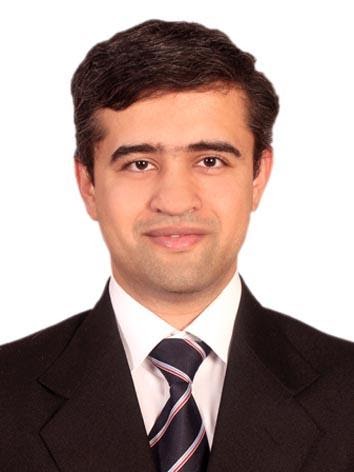
Mayur is an IT engineer and a chess enthusiast from Mumbai, working in Japan since 2013. He has played over-the-board tournaments in India, USA and Japan. He has also been a top three finisher in a one-day OTB events in Japan in 2013, 2015, 2017 and online blitz in 2020. Currently he is making use of online platforms for chess improvement and learning Ayurveda. He loves salsa dancing, reading, traveling and teaching.









































